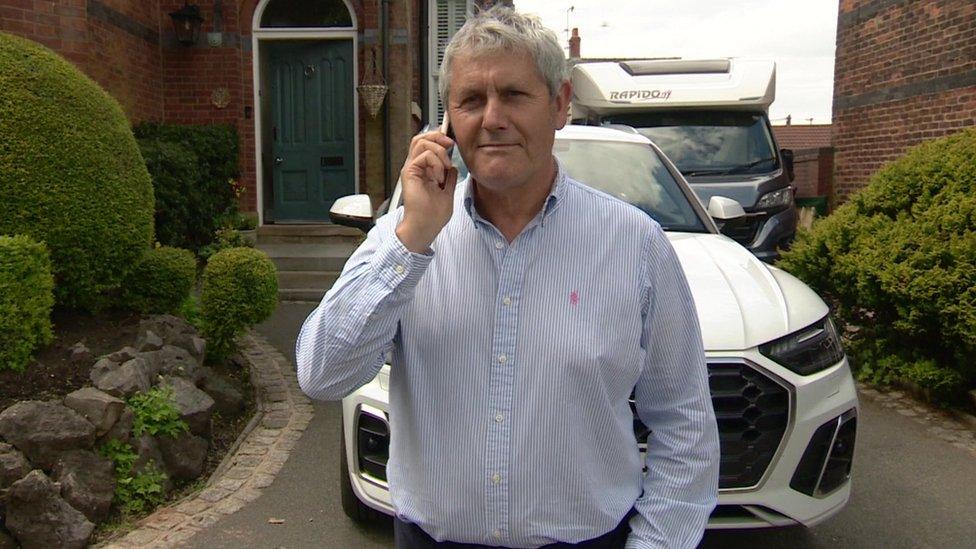Insurers must not penalise loyal customers, says FCA
- Published
- comments

People renewing their home or motor insurance will pay no more than they would as a new customer from January.
The new rules have been confirmed by the City regulator, the Financial Conduct Authority (FCA), following years of complaints.
The FCA says the move will save loyal customers an estimated £4.2bn over 10 years.
But it admitted it could spell the end of the cheapest deals for new customers.
The regulator has been trying to change the rules to prevent "price walking" - when insurance prices rise at each renewal even though the level of risk has not changed.
"These measures will put an end to the very high prices paid by many loyal customers," said Sheldon Mills, from the FCA.
"Consumers can still benefit from shopping around or negotiating with their current provider, but won't be charged more at renewal just for being an existing customer."
It follows complaints from consumer groups that loyal customers pay more unnecessarily.

How price rises affect you

So-called price walking is when a customer is charged more, year after year, by staying with the same insurance company - even though their risk is no greater.
The FCA has pointed to an example in which a new customer for home insurance typically pays £130 for a year's cover.
But for the same policy, having stayed with the same insurer for five years, that annual premium rises to £238.
For motor insurance, new customers pay £285 while people who have been with their provider for more than five years pay £370, according to the FCA's example.

Following a super-complaint from Citizens Advice, the FCA has been looking to tackle the loyalty penalty - a result of the growth, and encouragement, of shopping around for better deals for insurance, overdrafts and utilities.
Those who switch get the best deals as new customers. Those who stay loyal get charged more.
Ten million policies across home and motor insurance are held by people who have been with their provider for five years or more.

Mike Noone says the cost of his car insurance rose sharply
Among those facing the loyalty penalty was Mike Noone, from Manchester, who retired after running a fruit and vegetable stall with his wife for 16 years.
"Looking back, running a small business like ours was all consuming and you do tend to let things slide at home," he said.
He received a car insurance renewal quote in which the price had gone up by 20%.
"One of our daughters said: 'Dad, you've really got to get on the internet and find yourself a better quote than that'. So I did," he said.
He challenged his insurer which did not budge on the price, so he switched provider.
'Systematic scam'
Charities said other people might not be able to switch so easily. They said the problems were worse for people on very low incomes who might not have the technology to search for the cheapest deals, or those who find the calculations difficult.
"We're pleased to see the FCA setting the bar so high in stamping out this systematic scam, and we now need to see similar action in the other markets," said Matthew Upton, director of policy at Citizens Advice.
The FCA will also bring in new rules to make it easier for consumers to cancel automatic policy renewals and require insurers to look more closely at how they offer fair value for consumers.
It will also require home and motor insurance firms to report more data to the regulator.
A spokesman for the Association of British Insurers, which represents the sector, said: "As the FCA has said previously, insurers do not make excessive profits and, as they now point out, it is likely that firms will no longer be able to offer unsustainably low-priced deals to some customers."
He added that it was vital that customers still had incentives to shop around, and that people should look for the deal that suited their needs instead of just choosing the cheapest one.
- Published22 September 2020

- Published19 December 2018

- Published9 January 2020

- Published5 October 2020
